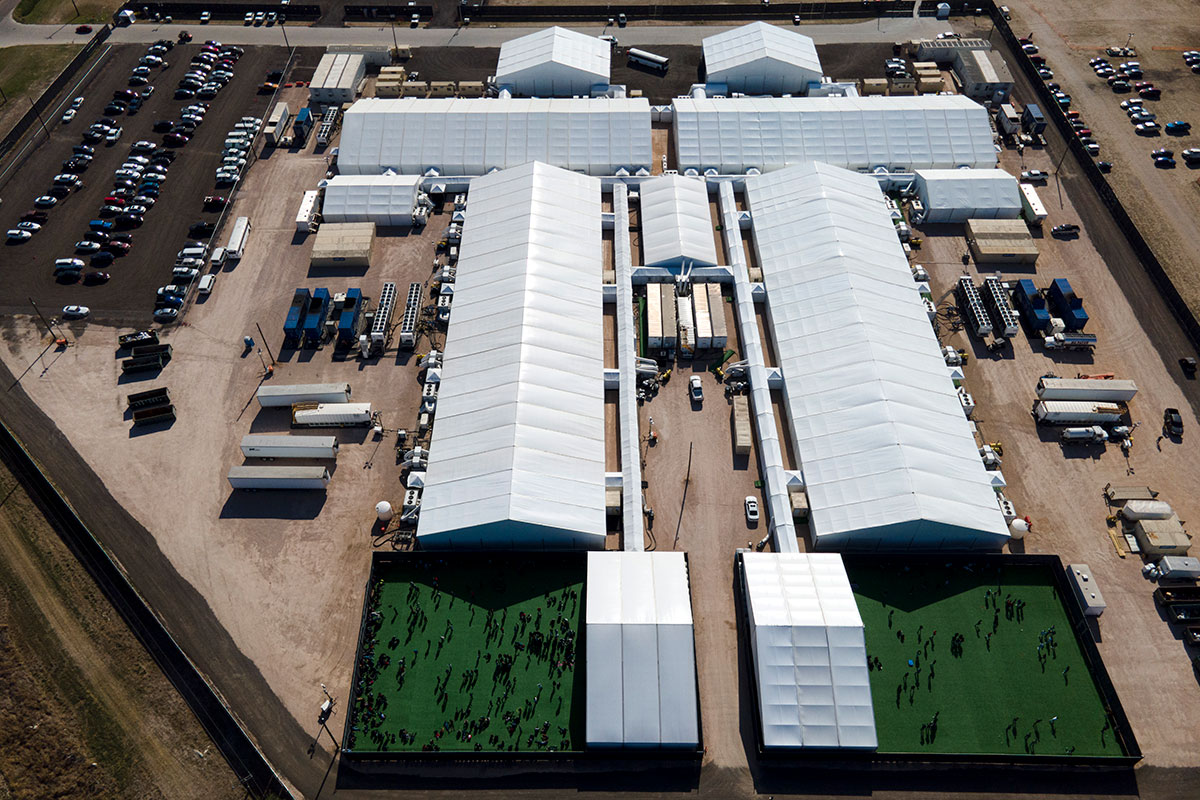By Kim A. Baranowski (Ph.D. ’14)
The Biden-Harris Administration has identified immigration reform as an immediate priority. This is vitally important, as global trends indicate that individuals and families will continue to flee danger and disaster and seek international protection. Given that 79.5 million people worldwide have been forcibly displaced, how can we respond to those seeking safety today?
To start, the new administration has begun to process asylees forced to remain in Mexico under the Migrant Protection Protocols. This is long overdue; tens of thousands still wait in improvised camps and shelters across the border, where they face barriers to securing legal representation and are vulnerable to kidnapping, extortion, sexual assault, and murder.

“CITIZEN PSYCHOLOGIST” Kim Baranowski (Ph.D. ’14) was honored in 2019 by by the American Psychological Association for her sustained commitment to leadership in advocacy, supporting survivors of human rights violations. She received TC’s Early Career Award that same year. (Photo: TC Archives)
In light of the harm inflicted on asylum seekers by the closure of U.S. borders, it is unreasonable to instruct them to “remain where they are to await further instructions.” The U.S. must develop procedures to allow these individuals and families to safely enter the country as quickly as possible. The administration should then ensure that asylees are released into the community while awaiting protected immigration status.
In light of the harm inflicted on asylum seekers by the closure of U.S. borders, it is unreasonable to instruct them to “remain where they are to await further instructions.” The U.S. must develop procedures to allow these individuals and families to safely enter the country as quickly as possible [and] ensure that asylees are released into the community while awaiting protected immigration status.
— Kim A. Baranowski (Ph.D. ’14), Lecturer, Department of Counseling & Clinical Psychology
The Biden-Harris administration also says it will stop family separation and the prolonged detention of children. However, detaining asylum seekers, even for a brief duration, is unacceptable and is associated with psychological distress. The government must act quickly, as reports indicate that the number of unaccompanied migrant children detained at the southern border had tripled at the end of April and 22,103 children were in U.S. Health and Human Services care on April 26, 2021.
In 2019, the Department of Homeland Security’s Office of Inspector General had already documented “dangerous overcrowding” at CBP facilities, finding an “immediate risk to the health and safety” of both immigrant children and adults held in these settings. The risks for those detained have only increased during the pandemic.
During my conversations with adults detained by ICE during the past year, they reported conditions that violate Center for Disease Control (CDC) guidelines for social distancing, face covering, and hand hygiene. They experienced little, if any, opportunities for quarantine and isolation necessary to prevent coronavirus transmission. Although some asylum seekers with certain medical conditions have been released, ICE reported 1,393 cases of COVID-19 among immigrants in custody on April 29, 2021 alone.
During my conversations with adults detained by ICE during the past year, they reported conditions that violate Center for Disease Control (CDC) guidelines for social distancing, face covering, and hand hygiene. They experienced little, if any, opportunities for quarantine and isolation...ICE reported 1,393 cases of COVID-19 among immigrants in custody on April 29, 2021 alone.
— Kim A. Baranowski (Ph.D. ’14), Lecturer, Department of Counseling & Clinical Psychology
Evidence shatters the myth that families will not show up for their immigration court dates and that therefore detention is warranted. According to Transactional Records Access Clearinghouse (TRAC) findings, the majority of families released from custody attend their hearings. Furthermore, attendance rates increase to 99.9% when families have legal representation.
With an estimated 1.3 million survivors of torture already living in the U.S., concerns about how to best support new asylum seekers are warranted. Everyone is capable of contributing to this effort.
For example, medical and mental health clinicians can learn more about the impact of exposure to human rights violations. They can ensure their clinics have culturally-responsive, linguistically-competent, and trauma-informed systems to meet asylees’ needs. They can also provide pro bono forensic evaluations and document medical and psychological evidence of persecution in conjunction with asylum applications.
Legal professionals can offer more pro bono advisement. Asylum seekers are much less likely to make successful claims for protected immigration status without representation, and grant rates have decreased in the past years. It is especially critical that lawyers provide counsel to asylum seekers who are currently detained.
Educators can partner with their schools to provide specialized services to students and their families. Asylees may need assistance in navigating our nation’s educational systems. Schools can also collaborate with their guidance counselors, social workers, and other mental health providers to offer empirically-supported services that are strengths-based and non-stigmatizing, and make referrals to trusted community agencies.
Individuals, too, can contribute in powerful ways. They can offer free translation and interpretation services, provide employment and housing, and sponsor relocating asylees. Constituents can contact their elected officials and encourage legislation that protects the rights of those without protected immigration status, as well as advocate for funding for resettlement programs.
There are many reasons to be hopeful as this administration confronts policies that represented an abdication of our nation’s responsibility to uphold human rights. Nevertheless, simply overturning past policies will not be enough. Asylees are our customers, clients, students, patients, co-workers, and neighbors. As our nation’s doors are poised to open wider to those seeking sanctuary, we can all consider how we want to welcome the newest members of our communities.
Kim Baranowski is a Lecturer in the Department of Counseling & Clinical Psychology at Teachers College, Columbia University, and the Associate Director of the Mount Sinai Human Rights Program. Watch a video of her acceptance remarks at TC’s 2019 Academic Festival, where she received the College’s Early Career Award.

